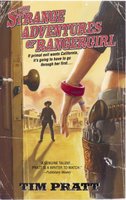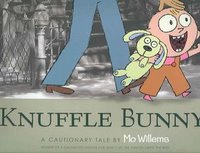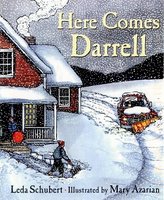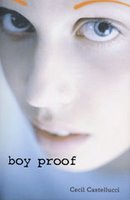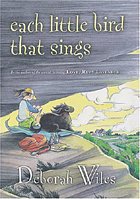Something Different On An Old Subject
"But maybe this will at least mean that publishers might start cutting back on their fiction lists, which have become completely out of control."
That was how Roger Sutton ended his Feb. 7 post at
Read Roger.
It caught my eye because I've been reading about too many books being published for quite some time. The argument goes something like this:
1. Publishers don't want to let nonblockbusters build an audience because they don't want to pay property tax on the books while they are sitting in their warehouses.
2. So books get only a few months before they are last seasons news and, before long, sent off to be remaindered or, worse yet, pulped.
3. Then the publishers have nothing to sell so they have to rapidly buy more manuscripts to turn into books, which
4. They won't let build an audience because they don't want to pay property tax on them and so on and so forth.
It's a cycle, folks.
Plus, somehow there are a lot of books being published, period. Everyone wants to write a book. Or write several.
So I am constantly reading, "Too many books are being published! That's what's wrong with publishing today! We must publish fewer books! That would fix everything!"
That argument goes that if fewer books were being published, there would be fewer books and authors competing for review space and shelf space in stores and libraries, and the finite number of readers wouldn't be spread so thin over the infinite number of books.
However, never have I seen anyone make any suggestions about
which books shouldn't be published. When I see authors make these kind of comments never does one of them volunteer to fall on his or her sword for the sake of the publishing industry and give up writing. (Don't look at me.) The pundits all know what should be done, but no one has any ideas about how to do it.
Until now.
Jeanette Winterson in an article called
Her Word on
The Times Online makes what might be called a modest proposal.
"Too much is being published. It is time to use new technology to slim the bloat," she says. "It is no shame to find other formats for publications that should not be books at all."
Now, her essay was a little rambly, and she did put me off at first with this: "First, we stop publishing books that needn’t be books. People who don’t really read don’t really need books — so let them have Jordan and Becks in lots of other ways. Audio, animated-audio, that is, audio with pictures — is just about right for most celebrity publications."
That sounded just a little bit witchy and nondemocractic in the small "d" sense of the word for my taste. But then I recalled going to the bookstore last summer to look for a book on writing short stories. I found one. And a couple of shelves of books on screenwriting. And more and more I'm seeing writers conferences, like the
one I mentioned yesterday, including screenwriting in their panels and workshops.
And then I recalled the animation I see on-line.
What she's talking about is already happening. Writers are already trying their hands at nontraditional forms.
So, the point I'm laboriously drawing near here, is that maybe not everybody has to write a book. Maybe all the creative effort that's going into novels and nonfiction could go into other things--movies and television and videogames and animation and things I don't know about. The creative desire can be nurtured, it just doesn't have to produce a book.
Am I suggesting a dumbing down of culture, mass illiteracy? Not at all. Though I'm obsessed with reading,myself, I am not so arrogant as to believe that everyone should hold it in as high regard as I do. We readers do tend to be an elitist bunch. Again, to quote Winterson: "Remember that mass literacy wasn’t even discussed until the 19th century — reading the way we read now has not been around for long and may not be the way forward."
I am a student of history. Nothing stays the same. Cultures evolve. If we evolve toward a culture that accepts "other formats" as Winterspoon puts it, we can trim the book publishing bloat without cutting people out of the creative process.
Hey, at least it's a step beyond "There are too many books being published!!"
Thanks to
ArtsJournal.comfor the link.


